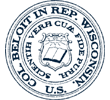Abstracts
Sponsor: Tarryl Janik
Nell Shay '28 | Unknown |
Major: Anthropology
|
Entheogenic Religion and the State
The psychedelic manifestations produced by DMT within ayahuasca hold cultural significance to South American Indigenous groups like the Kuntanawa of Brazil. Ayahuasca entered the U.S. through Brazilian religious movements such as Santo Daime and União de Vegetal UDV in the late twentieth century. These groups introduced ceremonial practices and theological frameworks that defined ayahuasca as a sacred sacrament. The 2006 Supreme Court decision Gonzales v. O Centro Espírita Beneficente Uniãno do Vegetal allowed the UDV to import and use ayahuasca under federal religious freedom protections.
Following this decision, independent ayahuasca churches began to emerge across the United States. The Soul Quest Ayahuasca Church of Mother Earth (Soul Quest), founded in Florida in 2015, expanded public access to ayahuasca ceremonies and later became involved in legal disputes with federal authorities, specifically the U.S. Drug Enforcement Administration (DEA). The contentious nature of religious freedom and ayahuasca exists within a historical timeline of Brazilian expansion and institutional diversification. Soul Quest’s legal battle embodies the broader pattern of ayahuasca churches developing from the historicity of small immigrant religious communities into a visible and contested presence in American religious history.
Sponsor: Katherine Harris
Sophie Thomas-Dietrich '26 | Madison, Wisconsin |
Major: Mathematics
Minor: Physics
|
The Braid Group in Knitting
In the field of abstract algebra, a braid group is a variation of a traditional symmetric group. In this talk, we explore braid groups in the context of cable knitting and describe a mathematical framework that is both group theoretic and physically applicable to knitting. This work furthers previous work in this field by providing illustrative diagrams, explicitly explaining the group theory definitions and notation, and code for creating diagrams. Most notably, we proposed mathematical axioms for knitting stemming from practitioners of the craft which provoke interesting mathematical questions for further study.




